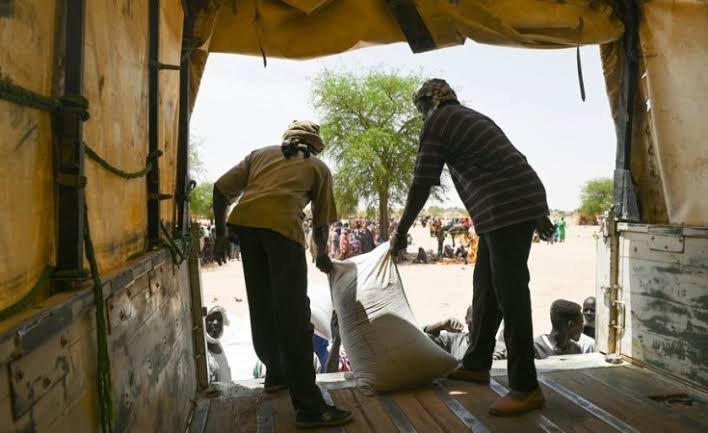Sudan’s transportation system paralyzed by ongoing conflict, drivers struggle to survive

Sudan, a country torn apart by a brutal war that erupted three months ago, is now facing the crippling consequences as road transportation grinds to a halt. The conflict, triggered by a power struggle between rival generals, has devastated the nation and left its transportation infrastructure in shambles.
Mahana Abdelrahman, a seasoned truck driver who used to traverse Sudan delivering shipments, now finds himself idle. Sitting at a café on the outskirts of Wad Madani, a city that has become a refuge for those fleeing the war-weary capital, Khartoum, Abdelrahman reflects on the unprecedented impact of the ongoing war. “I’ve never seen anything like this war in my 20 years of working as a lorry driver,” he laments to AFP.
In a stark contrast to the bustling roads he once traveled, lines of parked lorries stretch endlessly before him. Other drivers gather in small road-side cafes, passing the time with card games and tea. Al-Jazirah state, where Wad Madani is located, has become home to hundreds of thousands of displaced Khartoum residents. However, the region, like many others in Sudan, grapples with severe shortages of food, medicine, and other essential supplies.
A report by Sudan’s national chamber of transport, seen by AFP, reveals a 90 percent drop in road traffic across the country since the onset of the conflict. The report also highlights the dire consequences this has had on commercial activities. According to the Sudanese ports authority, the total exports for the first half of 2023 amounted to a mere $282 million, a significant decline from the $2.5 billion recorded in the same period last year.
Mohamed al-Tijani, another driver, emphasizes the difficulties even when cargo is available. The journey has become arduously longer, with fuel costs soaring up to 20 times pre-war prices. Drivers now try to bypass Khartoum completely to avoid violence and countless checkpoints. However, this alternative route adds at least 400 kilometers to their journeys, as shared by 50-year-old Tijani.
Meanwhile, those trapped in the inaccessible capital face unimaginable hardships. Factories have been shelled, warehouses looted, and markets ravaged, leaving countless Sudanese without means to support themselves. Initially, passenger buses traveled in convoys, transporting terrified Sudanese fleeing the escalating violence. However, now even bus services have come to a halt, severing vital connections between Khartoum and other states in the country.
Hussein Abdelqader, a bus driver, shares the drastic impact on his business, which relied on Sudan’s centralized road network. Similarly, Moataz Omar, who used to transport families on a 1,000-kilometer journey to Sudan’s border with Egypt, reveals that entering Khartoum has become impossible due to the intensifying conflict.
With no signs of the war abating, drivers, like many Sudanese citizens, fear for their livelihoods. “We’re afraid we’re going to lose our jobs,” Tijani admits, recognizing that companies won’t pay salaries if they’re not generating income.
While some buses still attempt costly and circuitous routes across Sudan, the country’s trains have ceased all operations. Passenger and freight cars that once traveled between the capital and northern Atbara, as well as southern Wad Madani, now remain motionless since the first blasts rocked Khartoum. Even the railway tracks themselves have become a battleground, according to an anonymous railway official.
Khartoum North, once a thriving city, now stands as a deserted ghost town. Its residents have fled either south to Wad Madani or north to Egypt, leaving behind a place devoid of water and electricity.
As Sudan’s transportation system remains paralyzed by the devastating war, the country faces an uncertain future. The impact on livelihoods, the economy, and the daily lives of its people is immeasurable, with no immediate relief in sight.







